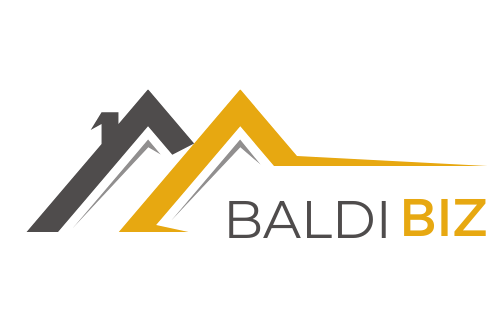Investing in a rental property in Dubai can provide a steady stream of income and long-term financial benefits. One area with great potential for rental properties is Jumeirah Village Circle, a popular residential community that has experienced significant growth in recent years. With apartments for sale in Jumeirah Village Circle, investors have the opportunity to earn rental income in a desirable location that is well-connected to the rest of the city.
In this guide, we’ll explore the benefits of owning a rental property in Dubai, including potential rental income, tax advantages, and the long-term appreciation of property values. Whether you’re a seasoned investor or considering your first investment property, read on to discover the advantages of owning a rental property in Dubai.
Investing in real estate is one of the most effective ways to secure your financial future. Owning a rental property in Dubai can be a lucrative investment, offering a variety of benefits for investors. Dubai’s growing economy, attractive tax policies, and growing tourism industry have made it an ideal location for real estate investment. This article will explore the benefits of owning a rental property in Dubai and why it can be a smart investment for your financial future.
Why Invest in Dubai Real Estate?
Dubai’s real estate market has experienced significant growth over the years, attracting both domestic and international investors. Here are some reasons why Dubai is an attractive location for real estate investment:
1. Booming Economy: Dubai has a growing economy with a diverse range of industries, including finance, trade, and tourism. This has resulted in a stable and growing real estate market.
2. Attractive Tax Policies: Dubai has no income tax, making it an attractive location for investors looking to minimize their tax obligations.
3. Growing Tourism Industry: Dubai is a popular tourist destination, attracting millions of visitors every year. This has created a high demand for rental properties, providing a steady source of rental income for investors.
Benefits of Owning a Rental Property in Dubai
Owning a rental property in Dubai can provide a variety of benefits for investors, including:
1. Steady Income Stream: Rental properties can provide a steady source of income, providing a reliable cash flow for investors.
2. Appreciation: Over time, real estate investments tend to appreciate in value, providing investors with long-term capital gains.
3. Tax Benefits: Rental properties offer a variety of tax benefits, including deductions for mortgage interest, property taxes, and depreciation.
4. Diversification: Real estate investments provide a way to diversify your investment portfolio, reducing your overall risk exposure.
How to Buy a Rental Property in Dubai?
Buying a rental property in Dubai can be a complex process, but with the right guidance and resources, it can be a smooth and hassle-free experience. Here are some steps to follow when buying a rental property in Dubai:
|
Step |
Description |
| 1 | Research the Market: Conduct thorough research on the Dubai real estate market to identify trends and pricing information. This will help you make informed decisions when choosing a property to invest in. |
| 2 | Find a Real Estate Agent: Work with a reputable real estate agent who has experience in the Dubai market. They can provide you with valuable insights and advice on the best areas to invest in, as well as help you find properties that meet your investment criteria. |
| 3 | Secure Financing: Obtain financing from a reputable lender to finance the purchase of the rental property. This will require a down payment, typically ranging from 20-30% of the property value. |
| 4 | Conduct Due Diligence: Perform due diligence on the property, including inspections, title searches, and legal review. This will ensure that the property is in good condition and free of any legal issues or disputes. |
| 5 | Negotiate the Price: Once you’ve found a suitable property, negotiate the price with the seller to get the best deal possible. This may involve making a counteroffer or agreeing to certain conditions, such as a shorter closing period. |
| 6 | Close the Deal: Once all due diligence has been completed and the price has been agreed upon, finalize the purchase of the rental property. This will involve signing a purchase agreement and transferring ownership of the property. |
| 7 | Rent out the Property: Once you’ve purchased the property, rent it out to tenants to generate rental income. You can either manage the property yourself or hire a property management company to handle the day-to-day operations. |
Following these steps can help ensure a smooth and successful investment process when buying a rental property in Dubai. It’s important to work with professionals who have experience in the Dubai real estate market and to conduct thorough due diligence on the property to minimize any potential risks or issues.
What are the risks associated with owning a rental property in Dubai?
Owning a rental property in Dubai can provide numerous benefits, such as passive income and long-term wealth building, but it’s also important to understand the risks associated with this type of investment. Here are some of the potential risks that landlords should be aware of when owning a rental property in Dubai:
- Market Volatility Dubai’s real estate market is known for its boom-and-bust cycles, with prices fluctuating rapidly over time. This can make it difficult to predict rental income and property values, which can impact your return on investment.
- Tenant Default Another risk of owning a rental property is the possibility of tenant default. If your tenant stops paying rent, you’ll need to take legal action to evict them and find a new tenant, which can be a costly and time-consuming process.
- Property Damage Owning a rental property also comes with the risk of property damage. Whether it’s due to natural disasters or tenant negligence, repairs and maintenance can be costly and impact your cash flow.
- Maintenance Costs In addition to repairs, owning a rental property in Dubai requires ongoing maintenance to keep the property in good condition. Landlords are responsible for maintaining the property, which can include landscaping, pest control, and cleaning, among other tasks.
- Vacancy Rates Finally, vacancy rates can impact your rental income and cash flow. If your property is vacant for an extended period, you’ll need to cover expenses such as mortgage payments and maintenance costs out of your own pocket.
To mitigate these risks, landlords can take several steps, such as working with a reputable property management company, investing in high-quality properties, and conducting thorough tenant screening. Here’s a table summarizing some of the ways landlords can minimize these risks:
|
Risk |
Mitigation Strategy |
| Market Volatility | Conduct thorough market research and invest in high-quality properties |
| Tenant Default | Screen tenants thoroughly and have a solid lease agreement in place |
| Property Damage | Conduct regular inspections and have a maintenance plan in place |
| Maintenance Costs | Invest in preventative maintenance and work with reliable vendors |
| Vacancy Rates | Set competitive rental rates and market your property effectively |
Overall, while owning a rental property in Dubai comes with risks, by taking a strategic and proactive approach, landlords can minimize these risks and maximize their returns.
Frequently Asked Questions
Q: What is the rental income tax rate in Dubai?
A: The rental income tax rate in Dubai is 5%.
Q: What are the average rental yields for properties in Dubai?
A: The average rental yields for properties in Dubai range from 5-8%.
Q: Can foreigners own property in Dubai?
A: Yes, foreigners can own property in Dubai.
Q: What are the property management fees in Dubai?
A: Property management fees in Dubai vary, but typically range from 5-10% of the rental income.
Conclusion
Owning a rental property in Dubai can be a smart investment for your financial future. With a stable and growing real estate market, attractive tax policies, and a booming tourism industry, Dubai provides an ideal location.
As an investor, owning a rental property in Dubai can provide you with a steady income stream, long-term appreciation, and tax benefits. However, it’s important to conduct thorough research on the Dubai real estate market and work with a reputable real estate agent to ensure a smooth and successful investment process.
In addition, owning a rental property in Dubai provides a way to diversify your investment portfolio, reducing your overall risk exposure. Real estate investments tend to have low correlation with other asset classes such as stocks and bonds, providing a way to protect your portfolio against market volatility.
When buying a rental property in Dubai, it’s important to conduct due diligence on the property, including inspections, title searches, and legal review. This will ensure that the property is in good condition and free of any legal issues or disputes.
Overall, owning a rental property in Dubai can provide a variety of benefits for investors looking to secure their financial future. With a stable and growing real estate market, attractive tax policies, and a booming tourism industry, Dubai is an ideal location for real estate investment.


